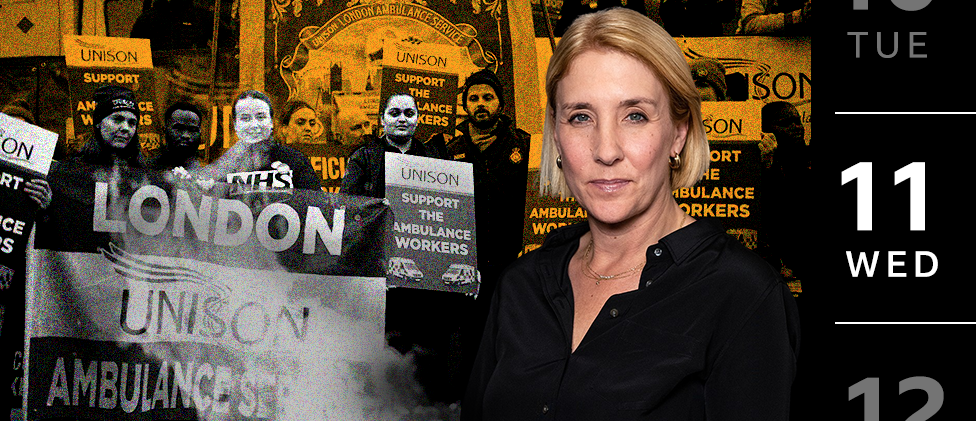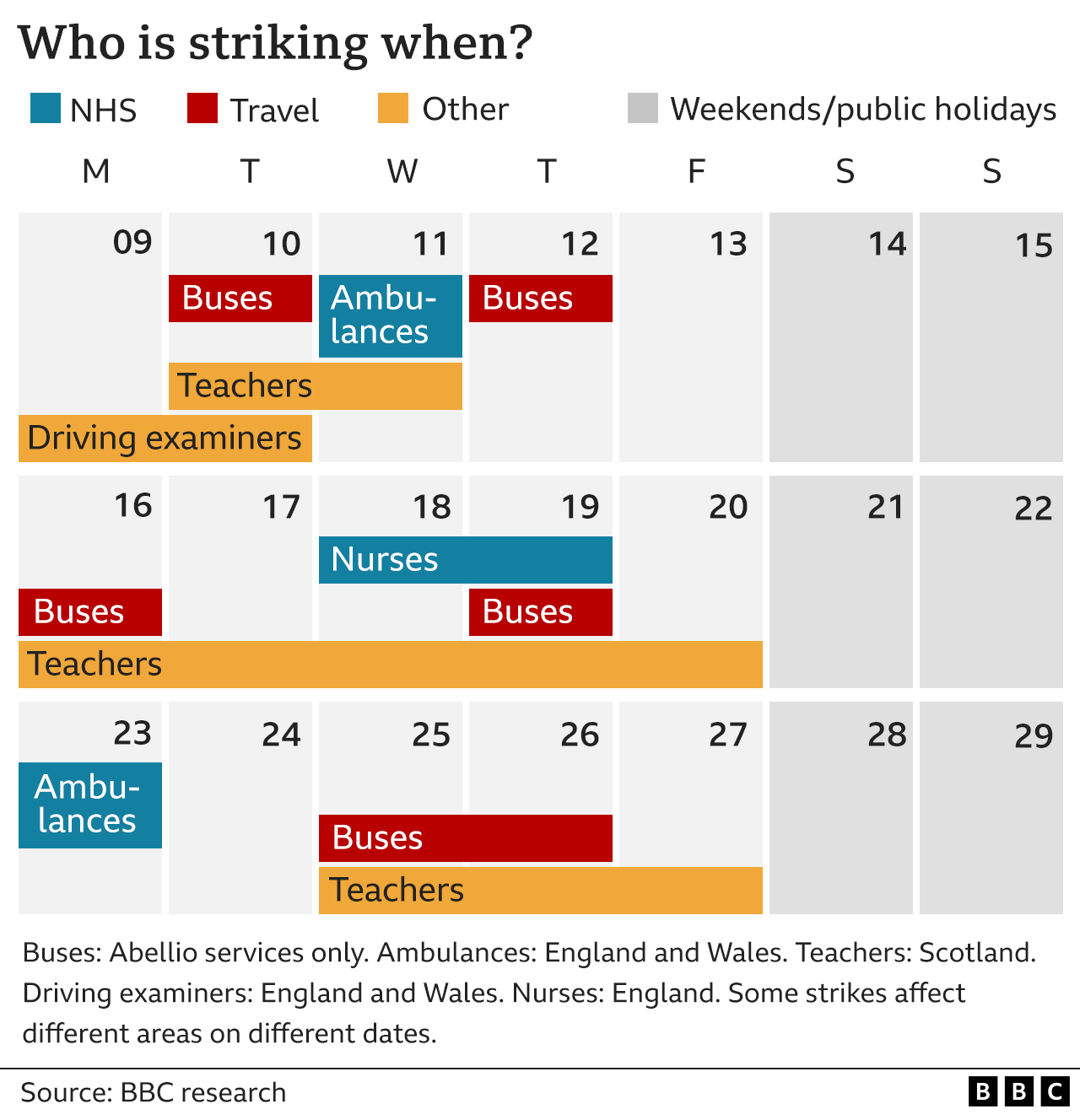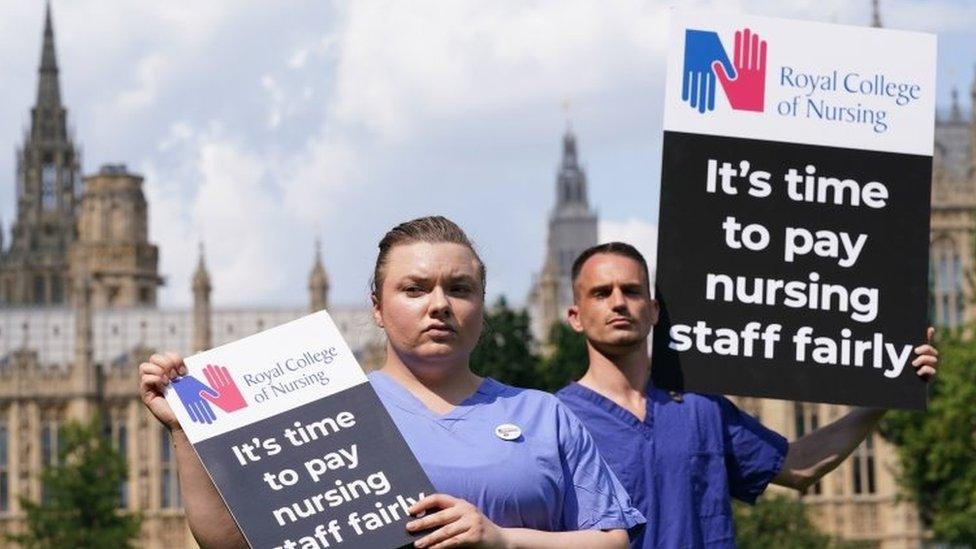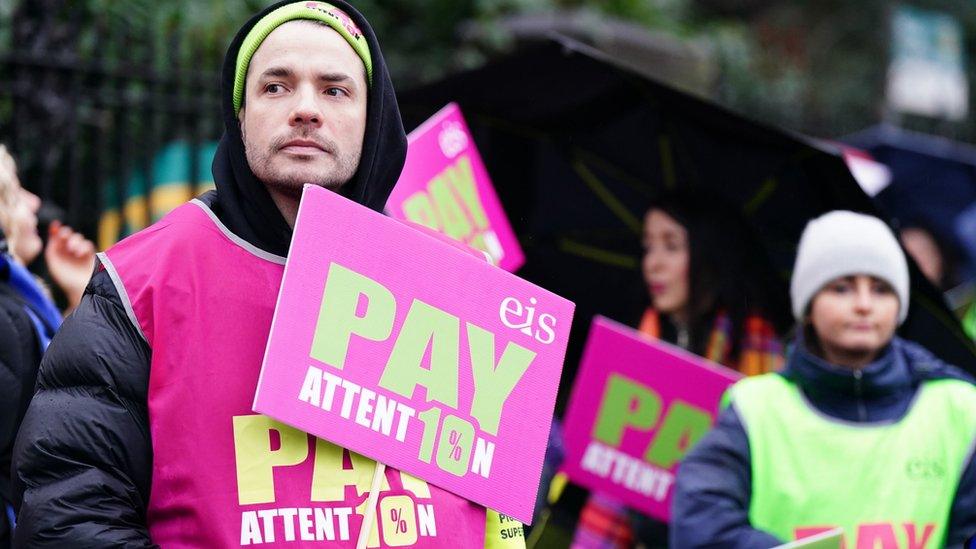Strikes Update: How Wednesday 11 January’s walkouts will affect you
- Published

As ambulance workers get ready to strike again, another anxious plea has gone out from the NHS: only call 999 if you really have to.
Wednesday's walkout will affect most ambulance services in England and Wales. The advice is to call 999 if you are seriously ill or your condition is life-threatening.
The action will involve thousands of staff, including paramedics, control room staff and support workers in a dispute over pay.
Action by teachers in Scotland also continues, with secondary schools being affected on Wednesday.
You can read more or watch this report about why people are taking strike action, and below you can find information on how it could affect you.
Your device may not support this visualisation
Which ambulance staff are striking?
Thousands of members of the Unison and GMB trade unions are walking out on Wednesday across most of England and Wales. The East of England will be the only service unaffected.
The start times and lengths of the walkouts vary between ambulance services, but most will last for about 12 hours.
The action will involve all ambulance employees, including call centre and control room staff, not just emergency crews.
Ambulances will still be sent to the most life-threatening calls - known as Category 1, which includes cardiac arrests. But it is up to each NHS trust in consultation with the unions to decide which calls are responded to.
The NHS advice is:
Call 999 If you are seriously ill or injured, or your life is in danger
For all other healthcare needs, contact the 111 helpline, your local GP or pharmacy
Attend appointments as planned. The NHS has said it will contact anyone whose appointment has to be rescheduled due to the strike
NHS medical director for secondary care Dr Vin Diwakar said: "The message from the NHS to patients is clear - if you need emergency care, please come forward.
"This means continuing to call 999 for life threatening emergencies as well as using 111 online for other health needs where you will receive clinical advice on the best next steps to take."
Teachers in Scotland
Almost all secondary schools across Scotland will be closed on Wednesday as teachers continue their action in a dispute over pay.
It is the second day of action after primary schools were closed all day on Tuesday.
Last-ditch talks between unions and Scottish government officials held on Monday failed to prevent walkouts.
The strikes involve members of the EIS, NASUWT, Scottish Secondary Teachers' Association (SSTA) and the Association of Headteachers and Deputies (AHDS) unions.
They have rejected a 5% pay increase, arguing for 10%. The latest offer includes rises of up to 6.85% for the lowest-paid staff.
If no agreement is reached, teachers in Scotland plan to strike on a further 16 days, beginning next week.
The days of action - split across every council in Scotland - will take place throughout January and into February.



How are you affected by the strikes? Are you taking part in strike action? You can email: haveyoursay@bbc.co.uk, external.
Please include a contact number if you are willing to speak to a BBC journalist. You can also get in touch in the following ways:
WhatsApp: +44 7756 165803, external
Tweet: @BBC_HaveYourSay, external
Or fill out the form below
Please read our terms & conditions and privacy policy
If you are reading this page and can't see the form you will need to visit the mobile version of the BBC website to submit your question or comment or you can email us at HaveYourSay@bbc.co.uk, external. Please include your name, age and location with any submission.
Related topics
- Published2 May 2023

- Published10 January 2023
